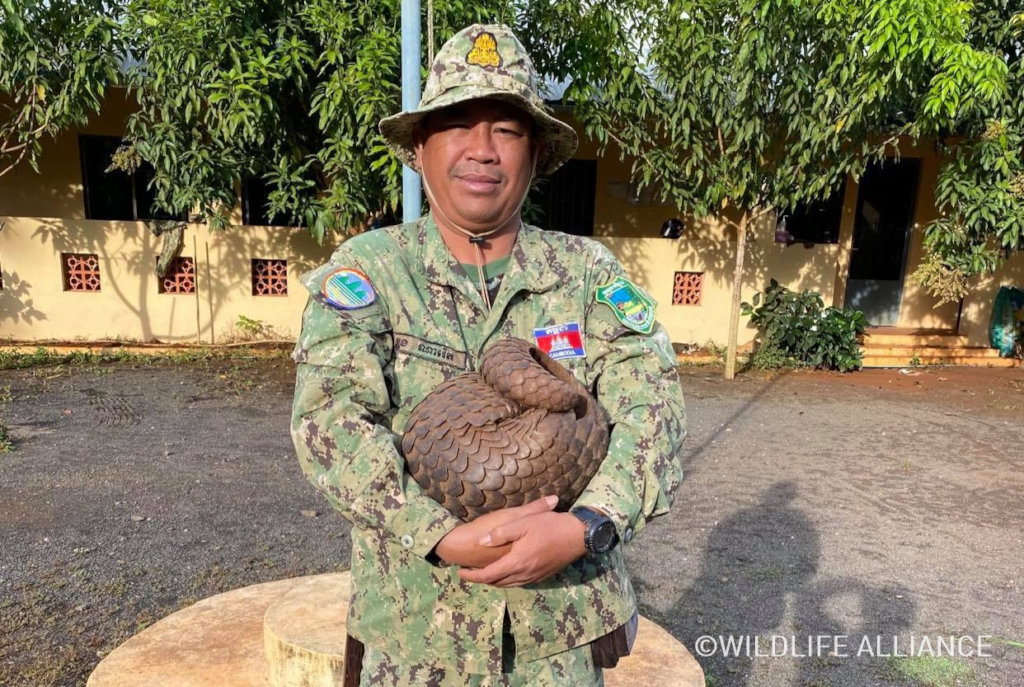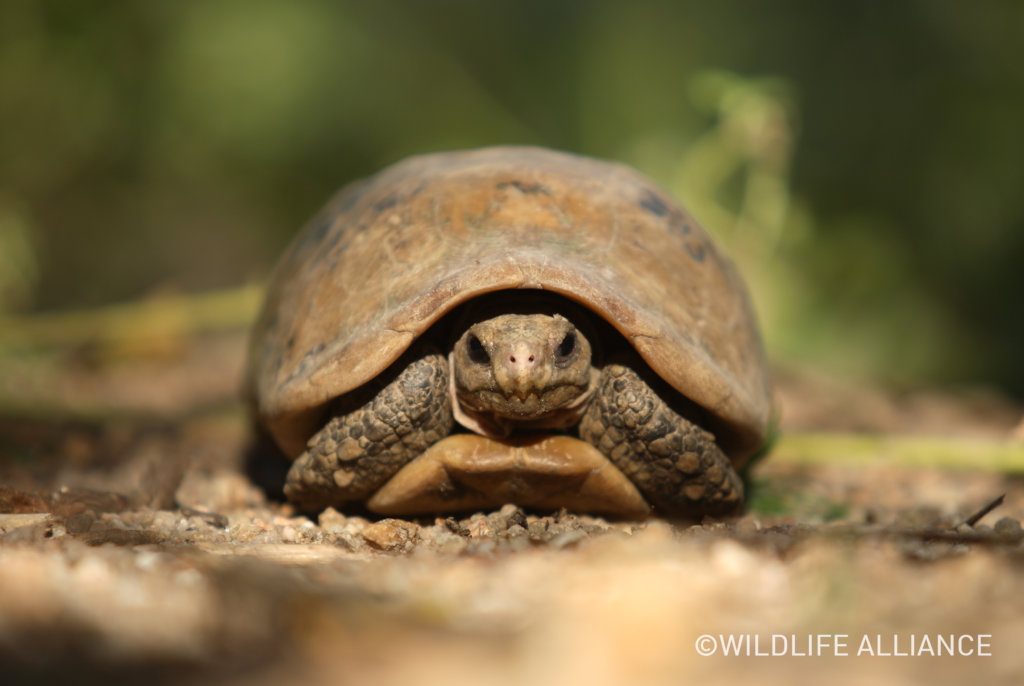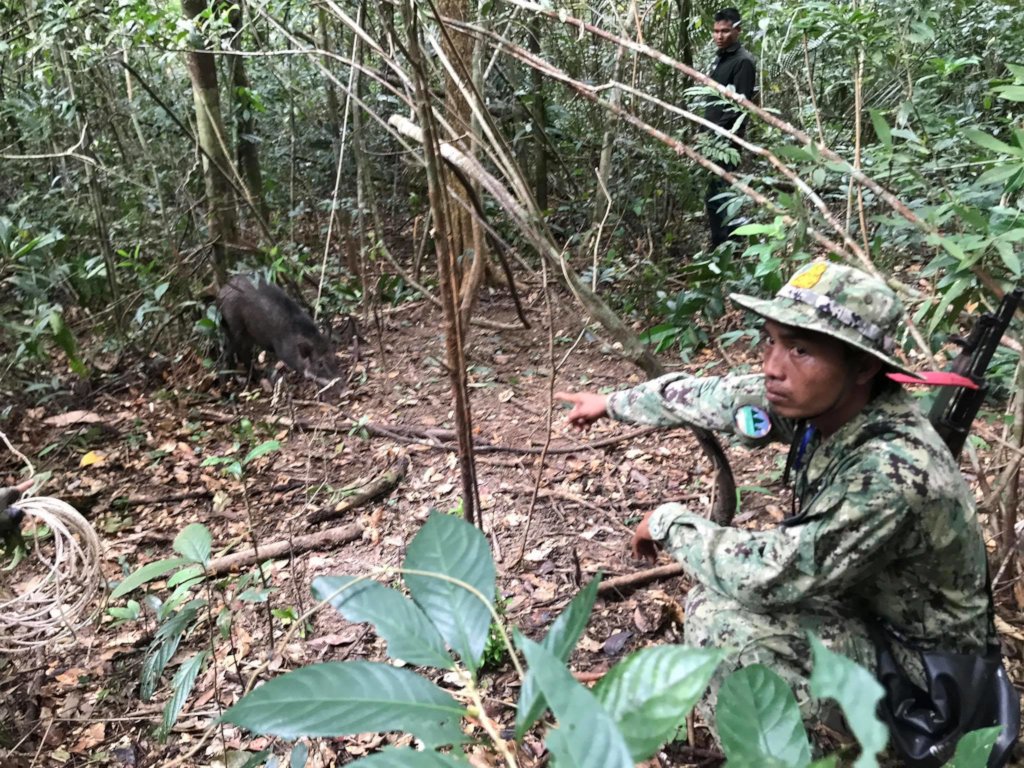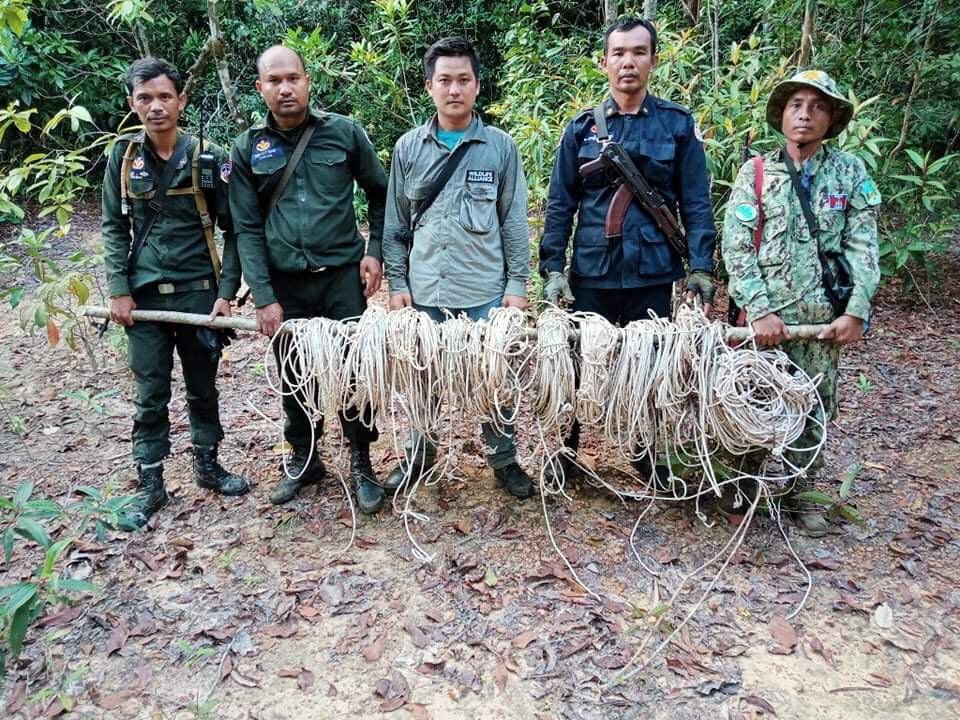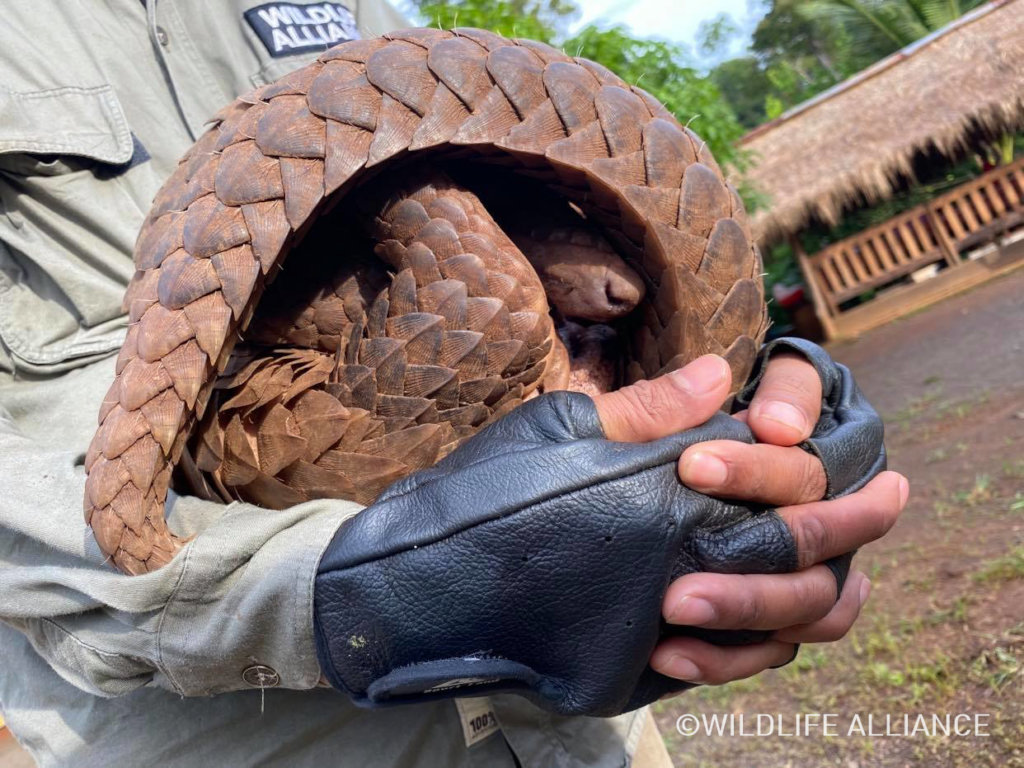By Claire Baker-Munton | Communications Officer
In forests throughout Southeast Asia, a crisis is raging. Demand for wildlife as medicine and food is surging, emptying forests of wildlife and driving extinction. The tools of the illegal wildlife trade mean that no animal is safe. In the past few months, Wildlife Alliance rangers have been busy rescuing animals at risk.
Homemade, cheap wire and rope snares are agents of death used by poachers, who set them in hopes of catching pangolin, civets and other high-value species for use as food or medicine for the illegal wildlife trade. But once set, snares kill indiscriminately, endangering any animal which steps into them - unless rangers get there in time to save them.
In early November, Trapeang Rung Patrol Unit received a tipoff about poachers in the area and mounted an ambush operation, proceeding by speedboat, motorbike and on foot to the location in Tatai Wildlife Sanctuary. There, they encountered four poachers on motorbikes, who fled the scene. Soon after, the rangers found close to 400 snares. All the snares were removed and destroyed. Thankfully, all but two were empty - rangers got there just in time to free a wild pig and Critically Endangered Elongated Tortoise from certain death.
In the last decade, the battle against snares has intensified. From 2010 to 2015, the number of snares removed from the Cardamoms almost doubled, from 14,364 to 27,714. This number continues to rise. Last year, rangers removed 38,636 snares from the Cardamoms. This year, rangers are expected to surpass this: from January to November the number of snares removed already stands at 38,238.
In mid-December, rangers had another breakthrough. This time, the call was a report from a community member. The caller described an animal which had wandered onto their property - a small mammal with a long nose covered in scales - a pangolin.
The rangers sprung into action. All eight species of pangolin are threatened with extinction, and the Sunda Pangolin found in Cambodia is Critically Endangered. So every pangolin counts. Rangers raced to the community in question, where the caller handed over the pangolin. Exchanges like this are proof that Wildlife Alliance’s law enforcement efforts and awareness raising on the importance of wildlife are paying off.
This pangolin had a happy ending: with the utmost care, rangers took it deep into the forest, where it was released. This is just one of hundreds of Critically Endangered Sunda pangolins released back into the wild by Wildlife Alliance since 2001. For more pangolin fun, watch this video of Wildlife Alliance releasing and tracking a pangolin in the forests around Chi Phat.
Thank you for your support, which enables Wildlife Alliance’s rangers to turn the tide on the snaring crisis and give wildlife a second chance at life.
Links:
Project reports on GlobalGiving are posted directly to globalgiving.org by Project Leaders as they are completed, generally every 3-4 months. To protect the integrity of these documents, GlobalGiving does not alter them; therefore you may find some language or formatting issues.
If you donate to this project or have donated to this project, you can receive an email when this project posts a report. You can also subscribe for reports without donating.
Support this important cause by creating a personalized fundraising page.
Start a Fundraiser